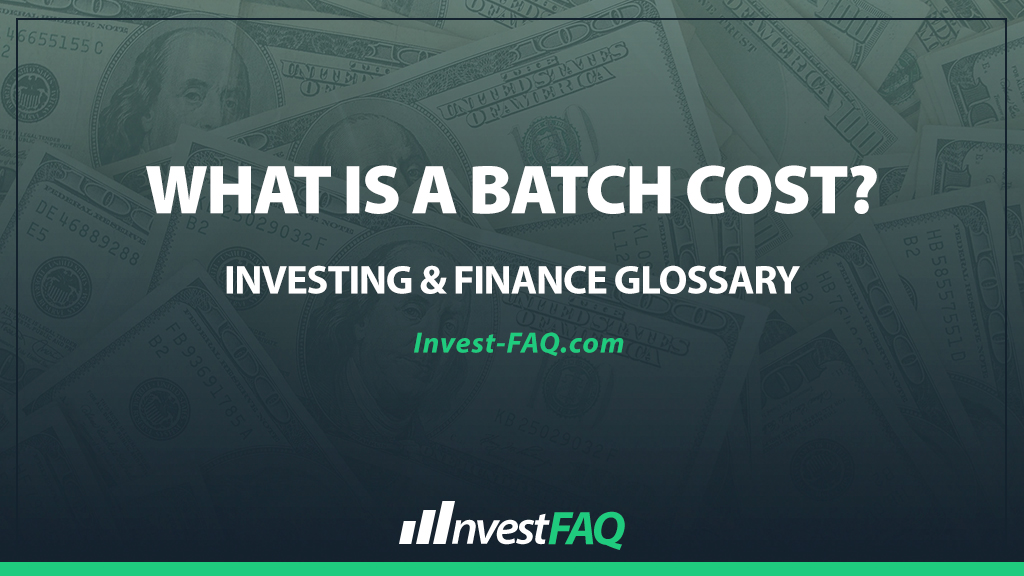
Batch Cost
Contents
A batch cost refers to the total cost associated with producing a specific batch of goods, encompassing all expenses from direct materials and labor to indirect manufacturing overheads allocated to that batch.
This costing method is particularly useful for manufacturers and businesses that produce goods in batches rather than in continuous production lines, allowing for precise cost tracking and management per batch.
In business, understanding and managing batch costs is crucial for pricing strategies, inventory valuation, and profitability analysis. It enables companies to determine the cost-effectiveness of producing goods in batches, identify cost-saving opportunities, and set prices that ensure a profit margin.
This approach is especially relevant for custom orders, seasonal products, or items produced in limited runs where the production costs need to be closely monitored and controlled.
Example of a Batch Cost
Consider “Delightful Confections,” a bakery that specializes in custom wedding cakes. For a particular wedding, the bakery uses $200 in direct materials (flour, sugar, eggs, decor), allocates $150 for direct labor (baker’s and decorator’s time), and assigns $100 in manufacturing overhead (utilities, equipment depreciation) to produce a batch of three wedding cakes.
The total batch cost for these cakes would be $450, calculated as the sum of direct materials, direct labor, and allocated manufacturing overhead. To determine the cost per cake, Delightful Confections would divide the total batch cost by the number of cakes in the batch, resulting in a cost of $150 per cake.
In this scenario, “Delightful Confections” effectively allocates its production costs across the batch of wedding cakes, allowing for a clear understanding of the cost incurred per unit produced.
This detailed cost breakdown is essential for setting the sale price of the cakes, ensuring that all costs are covered and a profit margin is achieved.
Additionally, by analyzing these costs, the bakery can identify areas where efficiencies might be gained or costs reduced in future batches, such as negotiating better prices for bulk ingredients or optimizing labor scheduling.
Significance for Investing & Finance
The concept of batch costing holds significant importance in accounting for several reasons:
Accurate Product Costing: It provides a detailed and accurate method for calculating the cost of goods produced in batches, essential for inventory valuation and cost of goods sold calculations.
Financial Decision-Making: Insight into the specific costs associated with each batch aids in making informed financial decisions regarding pricing, production planning, and budgeting.
Cost Control: Batch costing helps identify cost variances and inefficiencies in the production process, offering opportunities to streamline operations and reduce waste.
Profitability Analysis: By understanding the cost per unit within each batch, businesses can better analyze profitability at a granular level, adjusting production processes and pricing strategies accordingly.
In summary, batch costing is a vital accounting tool for businesses that produce goods in batches, offering precise cost tracking and management. This approach supports strategic decision-making, effective cost control, and profitability analysis, underpinning successful pricing strategies and financial management.
FAQ
How does batch costing differ from job costing and process costing?
Batch costing is used for groups of identical products, job costing is applied to individual jobs or projects, and process costing is used for continuous, homogeneous product flows, making batch costing ideal for products produced in distinct batches.
Can batch costing be applied to services as well as manufacturing?
Yes, batch costing can be applied to services that are provided in groups or batches, where the costs of delivering the service can be accumulated and allocated across each batch for pricing and profitability analysis.
What role does batch costing play in setting product prices?
Batch costing provides detailed insights into the cost of producing a batch of products, helping businesses set prices that cover all production costs and desired profit margins by accurately determining the cost per unit.
How can analyzing batch costs help a business improve its efficiency?
By analyzing batch costs, a business can identify high-cost areas in the production process, uncover inefficiencies, and take steps to reduce costs, such as negotiating better material prices or improving labor efficiency, ultimately enhancing profitability.
